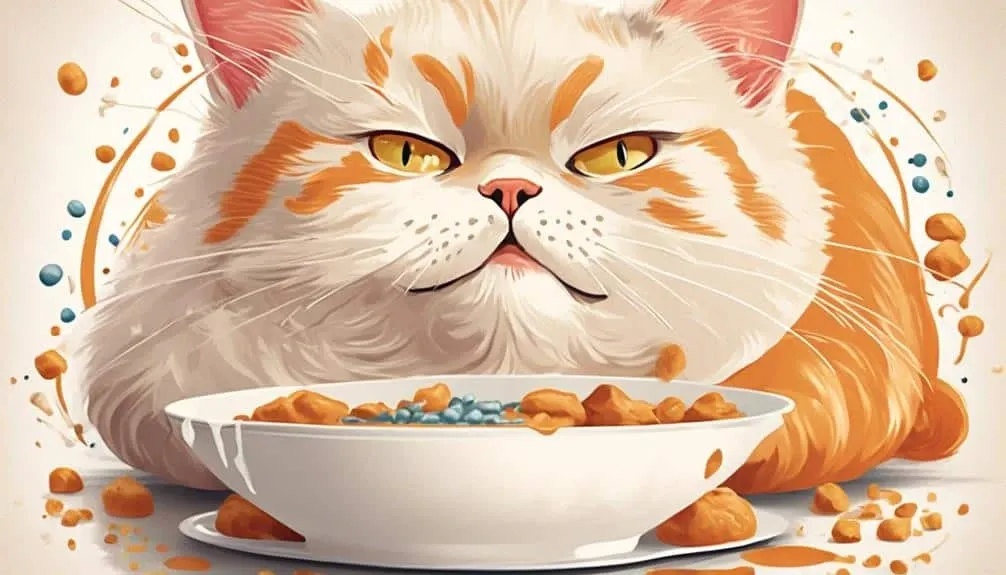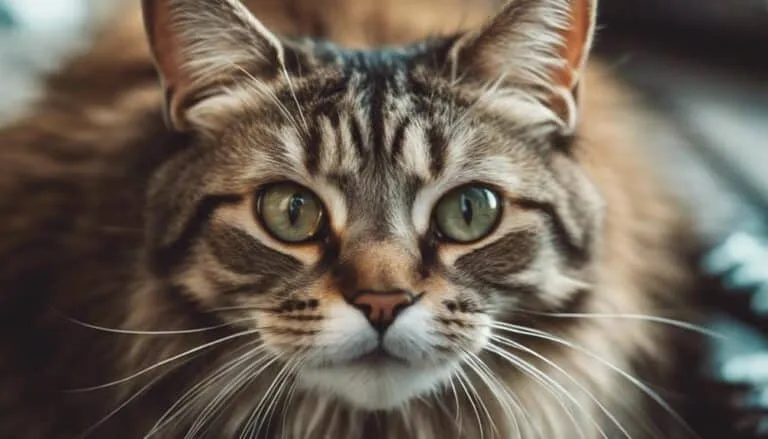The Best Fluffy Pancakes recipe you will fall in love with. Full of tips and tricks to help you make the best pancakes.

Did you know that there are surprising benefits to feeding your cat wet food?
While you may be accustomed to feeding your feline companion dry kibble, incorporating wet food into their diet can offer numerous advantages that you may not be aware of. From increased hydration and better digestion to a highly palatable meal and support for specific medical conditions, wet food has a lot to offer.
But that's not all – there are even more benefits waiting for you to discover. So, if you're curious about how wet food can enhance your cat's overall well-being, keep reading to find out more.
Key Takeaways
- Wet food for cats provides increased hydration and helps prevent dehydration, which is especially beneficial for cats with sensitive stomachs and urinary tract health issues.
- Wet food has a higher protein content compared to dry food, making it a good option for maintaining a healthy weight and supporting overall immune system function.
- Wet food is easily digestible and can help prevent hairballs, constipation, and gastrointestinal issues, making it a more balanced and suitable diet for cats with digestive health concerns.
- Wet food can be beneficial for cats with medical conditions such as kidney disease, diabetes, oral health problems, urinary tract issues, and during the recovery process after surgery or illness.
Increased Hydration and Digestive Health
Increased hydration and digestive health are two key benefits that wet food provides for cats.
Cats are obligate carnivores and have a low thirst drive, which makes it crucial for them to obtain moisture from their diet. Wet food has a high water content, ensuring that cats stay well-hydrated. This is especially important for cats prone to urinary tract issues. Additionally, the moisture in wet food helps prevent dehydration, which can lead to various health problems.
Moreover, the wet texture of the food aids in preventing hairballs, a common issue among cats. By providing a diet rich in moisture, wet food promotes healthy digestion and bowel movements, reducing the risk of constipation and gastrointestinal complications.
It's imperative to prioritize the importance of moisture in a cat's diet to support their overall well-being and prevent potential health issues.
Enhanced Palatability and Weight Management
Wet food offers enhanced palatability and can aid in weight management for cats. The increased moisture content in wet food makes it more appealing to cats, stimulating their taste buds and increasing their appetite. This can be beneficial for cats that are picky eaters or have a decreased appetite.
In addition, wet food has a higher protein content compared to dry food, which helps cats feel satisfied and can contribute to weight management. The moist texture of wet food also helps cats feel fuller for longer periods, reducing the likelihood of overeating.
Furthermore, feeding cats wet food can help reduce food waste, as cats tend to eat more of the food provided, resulting in less leftover food. By incorporating wet food into your cat's diet, you can enhance their enjoyment of meals and potentially support their weight management goals while reducing food waste.
Nutritional Value and Immune System Support
The nutritional value of wet cat food extends beyond its high protein content and includes essential vitamins, minerals, and omega-3 fatty acids that support overall immune system function. Omega-3 fatty acids are beneficial for cats as they help maintain healthy skin and coat. These fatty acids can also provide anti-inflammatory effects, which can be beneficial for cats with certain immune system conditions.
In addition, wet cat food contains essential vitamins and minerals that are necessary for a cat's overall health. These nutrients play a crucial role in supporting various bodily functions, including the health of the urinary tract.
Benefits for Cats With Medical Conditions
When cats have medical conditions, incorporating wet food into their diet can provide numerous benefits to support their health and well-being.
For cats with kidney disease, wet food can be especially beneficial. Kidney disease often leads to dehydration, and the higher moisture content in wet food helps prevent dehydration and supports kidney function.
Additionally, wet food can be easier for cats with oral health problems to consume. Cats with dental issues may struggle with dry kibble, but the softer texture of wet food makes it easier for them to eat.
Tips for Transitioning to Wet Food
To successfully transition your cat to wet food, it's important to follow a gradual introduction process to avoid any potential digestive upset. Start by mixing a small amount of wet food with your cat's current dry food, gradually increasing the proportion of wet food over time. This helps your cat adjust to the new texture and flavor of wet food while still providing the familiar dry food.
Offer a variety of flavors and textures to find what your cat prefers, as this can increase their interest and acceptance of the wet food. It's essential to monitor your cat's appetite during the transition and adjust the portions accordingly.
If your cat shows any signs of digestive upset or refuses to eat the wet food, consult with your veterinarian for guidance and recommendations. By employing these transitioning techniques and monitoring your cat's appetite, you can successfully transition them to a wet food diet.
Conclusion
In conclusion, incorporating wet food into your cat's diet can provide numerous benefits.
Did you know that a study found that cats who consumed wet food had a 28% lower risk of developing urinary tract diseases compared to those who only ate dry food?
This statistic highlights the importance of wet food in promoting urinary tract health in cats.
By making the switch to wet food gradually and consulting with your veterinarian, you can ensure that your feline friend enjoys all the advantages of this nutritious and delicious option.








